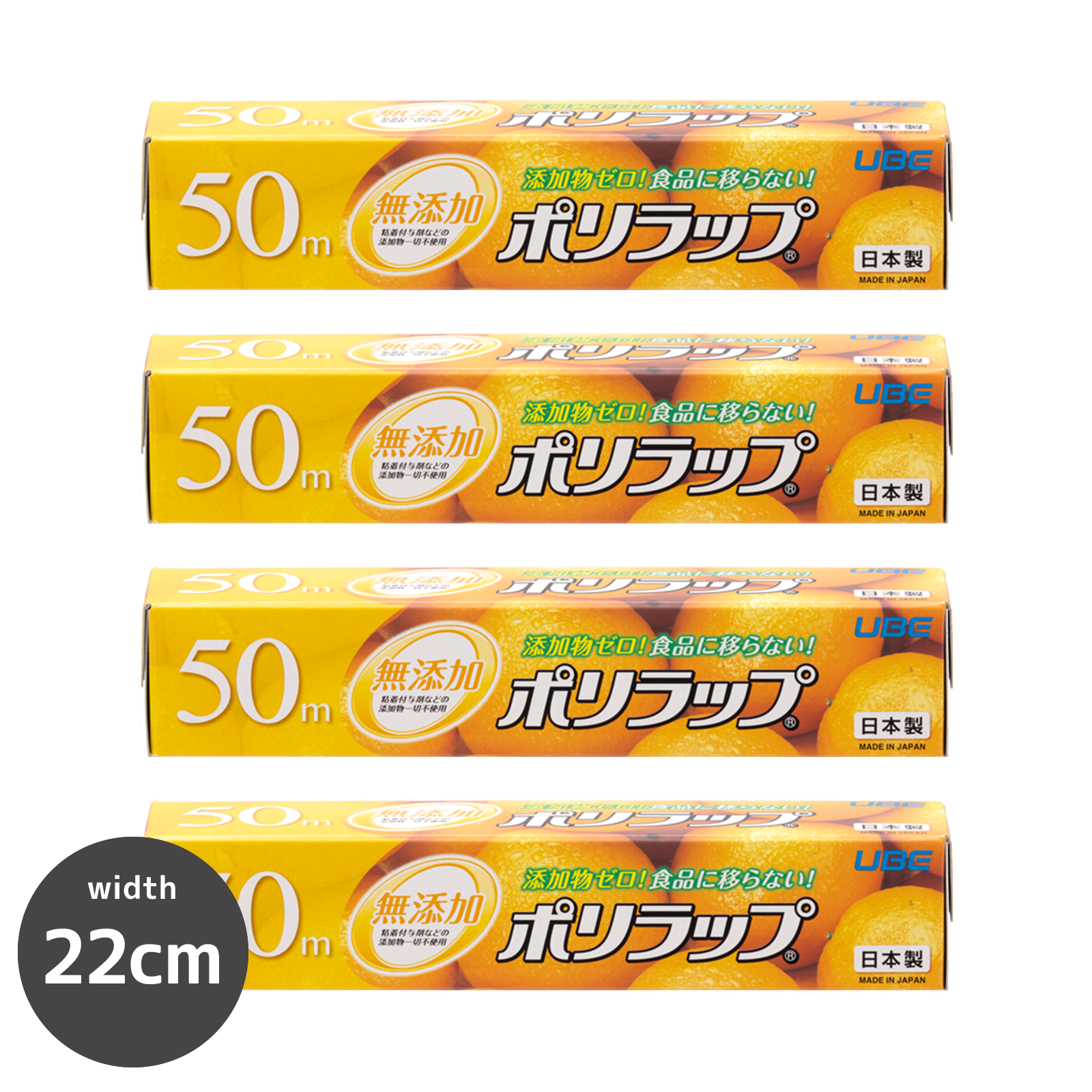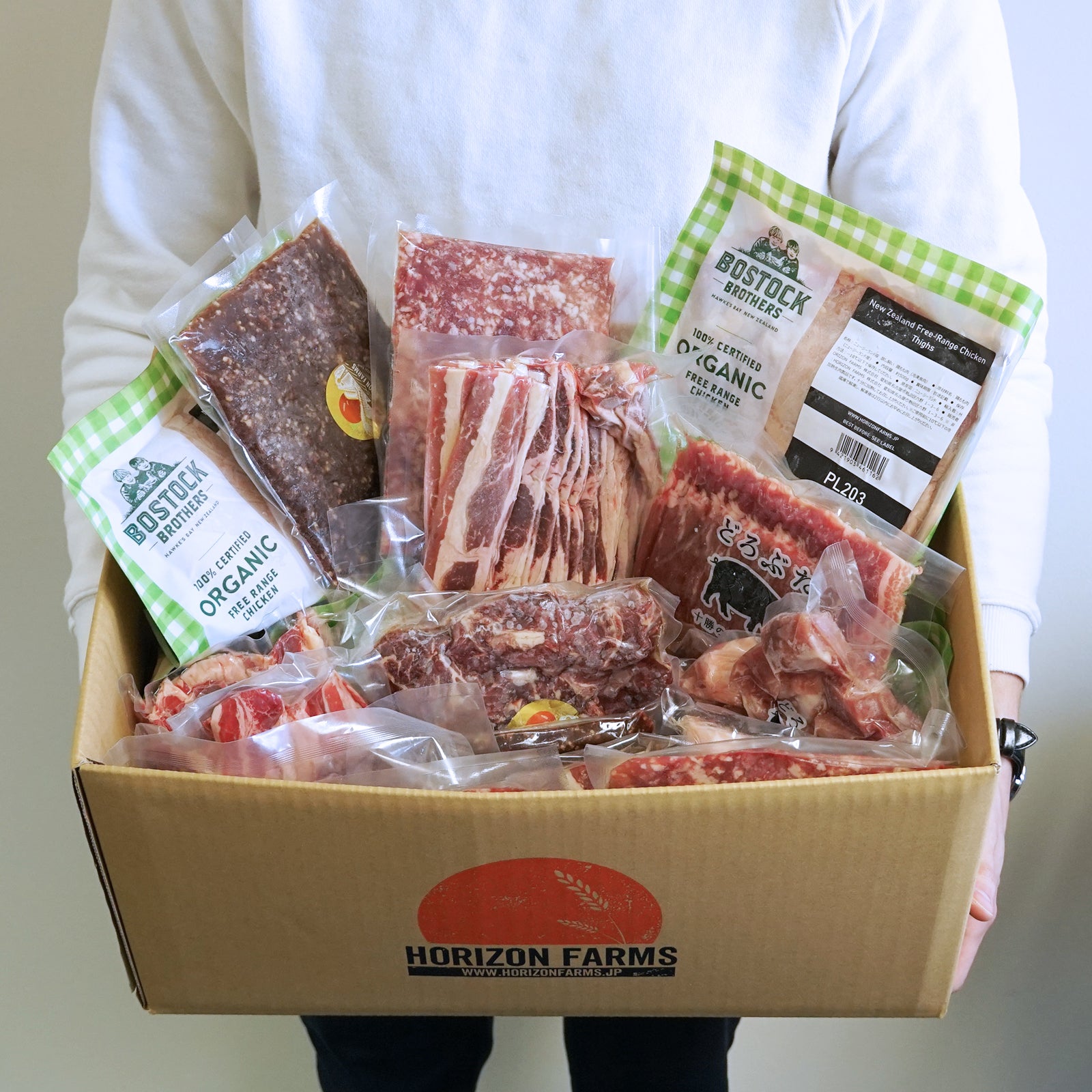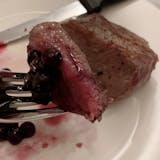












Horizon Farms
Venison Backstrap Striploin B-Grade (300g) Best By: May 6th, 2025
Choose options
This product will be discontinued when current stock runs out. Because of this and the short best-by date of May 6th, 2025, we are offering it at a special low price. Please rest assured there are no issues of quality or safety, so please enjoy this opportunity while supplies last. Please note that we cannot accept exchanges or returns due to the short best-by date.
One deskinned whole striploin (backstrap) of venison. One striploin weighs around 300g (10.5oz.) and is closely trimmed, steak-ready. This top-quality venison striploin is exceptionally lean and full of flavor. You can cut the striploin into smaller steak medallions as seen in the images. This delicate steak needs to be cooked with olive oil or butter on slow heat to medium-rare in a fry pan or skillet. Not more, not less. Tender and full of flavor - made for special occasions. Serve with an all-natural blueberry sauce for that exquisite touch. See the cooking instructions below.
Venison, the other red meat. Often found on the menus of upscale restaurants throughout the world. It contains less fat than other meats and is rich in protein and iron, which makes it a healthy food choice. Most folks associate venison with gamey odor and tough meat - which occur if the meat is processed incorrectly. Give our free-range venison a chance, it'll change your view on venison.
Our premium quality venison comes from deer that is all-time free-range in New Zealand and Australia. This venison has a subtle delicate flavor and superb tenderness mostly due to a healthy and low-stress life. It goes without saying that the animals have never been treated with antibiotics or growth hormones.
Contents
| Contents | 1 whole striploin |
| Weight | 300g (10.5oz) |
| Serves | Serves 1-2 depending on the serving style |
Shipping & Handling
| Shipping | Shipping and delivery is frozen |
| Handling | Keep frozen below -18°C (0°F) |
| Defrosting Time | In the fridge: approx. 24h In ice-water: approx. 4h |
| Cooking Method | Grill, Cast-Iron Skillet, Fry-Pan, Oven |
| Expiration | Frozen: May 6th, 2025 Chilled: Please consume unopened pack within 3 days. |
Details
| Also known as | Deer meat, saddle, striploin, sirloin, loin, backstrap |
| Country of Origin | New Zealand, Australia |
| Ingredients | Venison |
| Cut from | Striploin |
| Category | Steaks |
| Packaging | Vacuum packed |
✔ Free-range on large open pastures in either New Zealand or Australia and treated with respect.
✔ No subtherapeutic use of antibiotics or growth-promoting hormones. No factory farming. These deer live a stress-free and healthy life.
✔ Subtle delicate flavor and superb tenderness.

Venison Striploin Medallion Recipe Instructions

Completely defrost the striploin cut. Open the pack and pat them dry with a kitchen paper towel. In the image shown we have cut the striploin piece into two smaller striploin medallions for presentation.

Sprinkle lightly with sea salt and freshly ground black pepper.

Prepare a skillet or fry-pan with olive oil or unsalted butter. Low-to medium heat. You need to hear the medallions sizzling.

Keep turning them often so they are cooked evenly on all sides. Venison is very lean and cooks very fast - make sure you don't overcook them. Use a thermometer or your finger to determine doneness. Venison should not be cooked past medium-rare for the best taste experience.

Once the internal temperature of the striploin medallions has reached 50 degrees Celsius (122 degrees Fahrenheit) remove them from the heat and place them on a cutting board.

Allow them to rest for 5 minutes. Juices will flow out so make sure your cutting board has a juice groove. By the way, the red juice is actually myoglobin and not blood.

Cut the medallions into smaller slices for serving. Perfectly cooked to medium-rare.

Serve with all-natural sugar-free blueberry sauce as a topping.

Enjoy top-quality venison 5-star style right at home.



